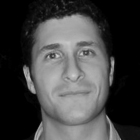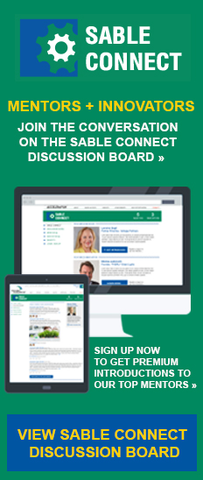expert views« Back to Expert Views Listings

What You Know Now Beats Who You Know
Auren Hoffman, CEO, Rapleaf
"What You Know" now beats "Who You Know"
The old adage that "it's not what you know but who you know" is so entrenched that we don't question the premise. Undoubtedly, who you know has been important throughout history, whether in the trade networks of ancient Greece, or in the dense web of high tech companies in Silicon Valley. A good network is especially important when capital is scarce, information hoarded, and when finding the appropriate contacts is difficult. For most of history, knowing the right people was crucial if you wanted cash and cache.
In a Harvard Business Review article entitled "How to Build Your Network," Brian Uzzi and Shannon Dunlap contend that "Networks determine which ideas become breakthroughs, which new drugs are prescribed, which farmers cultivate pest-resistant crops and which R&D engineers make the most high-impact discoveries." They cite the 1998 work of University of Pennsylvania sociologist Randall Collins who showed that breakthroughs from icons such as Freud, Picasso, Watson, Crick, and Pythagoras were the consequence of a particular type of personalnetwork that prompted exceptional individual creativity.
But with tools such as LinkedIn and Facebook, the ability to network is becoming more democratized. If before it was difficult to ferret out the perfect contact, today finding a right marine biologist in New Zealand or the genetic researcher in Norway is as easy as a Google search. And social media has made it even easier to connect with that person. As for capital, today it is relatively plentiful and accessible, and it is much easier than ever to get access to people who have it (accessing capital can be as easy as sending an email).
Information, too, has been democratized. It used to be that if you wanted to get access to cutting-edge ideas in technology, you needed an invitation to an exclusive conference like TED, or to attend a university like MIT. Today, TED lectures and MIT courses are offered free online. The only barrier to most of the world's best information is knowing English. Because it is so accessible, public information offers less competitive advantage than previously.
Given our hyper-connected world, could it be that "who you know," while still important, matters a little less than in the past? Could it be that "what you know" carries more weight?
My intuition is that "what you know" has now crossed the line to be more important ... and possibly even MUCH MORE important ... than "who you know." Like Kurt Vonnegut said in Breakfast for Champions; "new knowledge is the most valuable commodity on earth. The more truth we have to work with, the richer we become."
In today's world, if you know something really compelling, you will be sought out ... and sought out directly. Dorothy will follow the World Wide Web equivalent of the Yellow Brick Road to come to you. In the past, the people with connections were gatekeepers who controlled access to the elite circle and got paid handsomely for that. Today, people that invent interesting things (the true What-You-Know people) will reap many more rewards than the brokers who make introductions.
Even professions such as banking and law are becoming more specialized. The lawyer that understands the intricate tax implications of U.S.-Brazil joint ventures is now much more valuable than the generalist lawyer that introduces you to that person.
I'm not saying your network isn't important – it will just be less important than it has been in the past. Even the Wizard of Oz was looking to network: just before he leaves the Emerald City he tells Dorothy that he is off "to confer, converse and otherwise hobnob with my brother wizards."
In the new world of abundant capital, easy access to information and people with knowledge, it's what you know rather than who you know. please comment at: http://blog.summation.net/2012/10/it-is-now-what-you-know-not-who-you-know.html#comments
About What You Know Now Beats Who You Know
Auren Hoffman is the CEO of Rapleaf, an automated search service that enables companies to become more knowledgeable about their consumers. He is also the author of a blog entitled Summation, co-founder of BrightRoll and AdRocket, as well as the founder of multiple Internet companies, including BridgePath, Kyber Systems, and GetRelevant. Hoffman is an angel investor and earned his bachelor's degree in engineering and operations research from the University of California–Berkeley.
Follow Auren on Twitter: @auren
Subscribe to Auren on Facebook
Read other Auren Hoffman articles on Summation.net
« Back to Expert Views Listings
Other Expert Views:
Q&A with Donovan Neale-May, Founder, SABLE Accelerator, CMO Council
Q&A with Kathryn Sharfman, CMO and Chief Platform Officer, Sun Exchange
Q&A with Bernard Wolfsdorf , Founder & Managing Partner, Wolfsdorf Immigration Law Group
Q&A with Pieter van Schalkwyk, CEO, XMPro
Q&A with Steuart Pennington, CEO , South Africa - The Good News
Q&A with Pumela Salela, SABLE Advisory Board Member, Global Sourcing Council
Q&A with Prof. (JD) Jonathan Jansen, Vice-Chancellor and Rector, UFS UV
Q&A with Pieter de Villiers, Founder and CEO, Clickatell
Q&A with Anthony Stonefield, Managing Director, Gramercy Millennium Group
Q&A with Pumela Salela, SABLE Advisory Board Member, Global Sourcing Council
To Become a Superstar, Improve Your Strengths (Not Your Faults), Auren Hoffman, CEO, LiveRamp
Q&A with Faheem Kajee, Co-Founder, Found (Previously Pashash)
Q&A with Jake Davidow, Founder, Teach Me Sushi and Teach Me Chocolate
Q&A with Eran Eyal, Co-founder, Springleap
Q&A with Bradley Smith, Co-Founder, BusinessOptics
Q&A with Nick McCreath, Co-Founder, Super Simple Survey
Q&A with Barry Kayton, Founder and CEO, Cognician
Q&A with Michael Leeman, Entrepreneur and Investor, RunwaySale, Gyft and Miombo Consulting
Q&A with Anita Nel, CEO: Innovation and Business Development, InnovUS, Stellenbosch University
Q&A with Laurie Olivier, Partner - 4Di Capital, Board Member and Chairman, HealthQ Technologies

